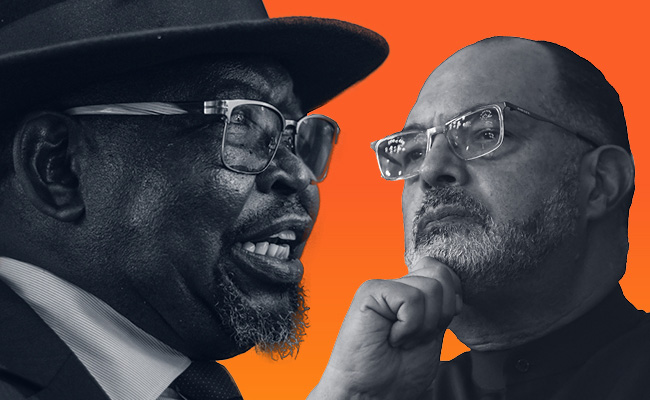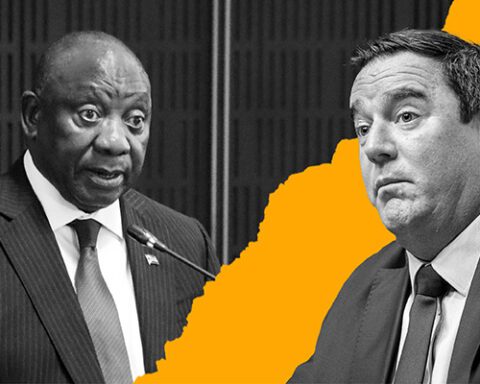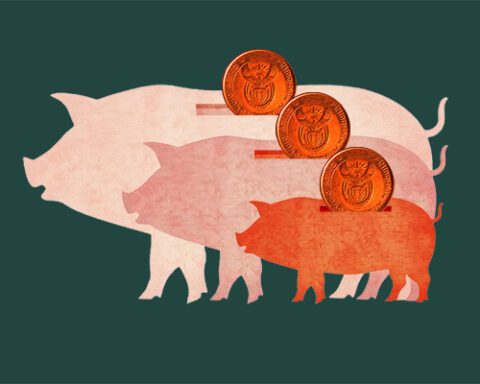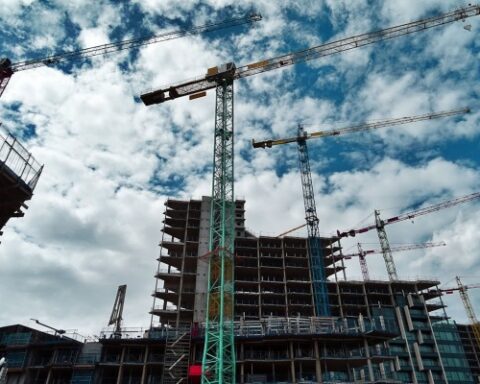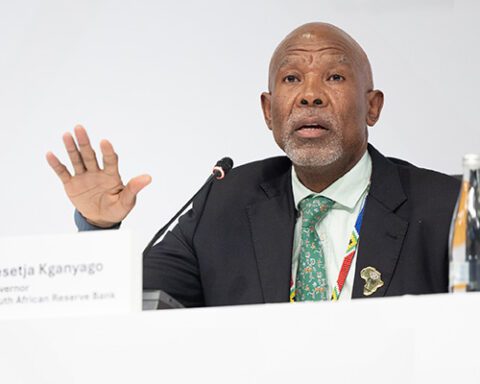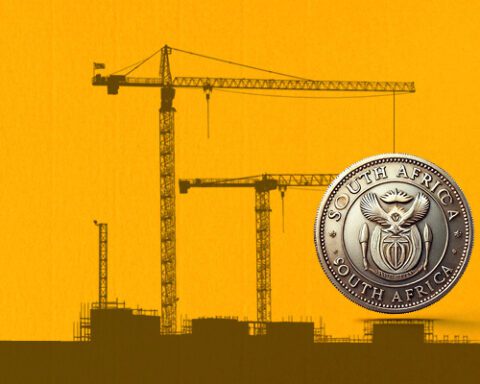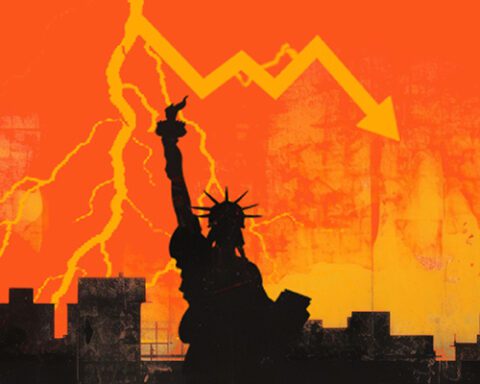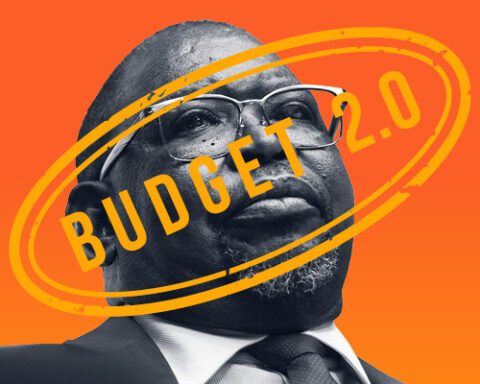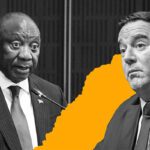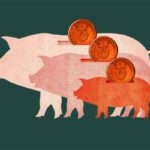It was the crowning faux pas on a day of such fiscal chaos that, if it doesn’t quite crack infamy status, it certainly merits honourable mention.
After Enoch Godongwana’s budget speech had been postponed – the first time in living memory that the finance minister’s headline event had suffered such an indignity – he was assailed with questions at the press conference about the advisability of trying to raise VAT to 17%.
More particularly, Godongwana was asked how this could be reconciled with the views of South African Revenue Service (Sars) commissioner Edward Kieswetter, who two weeks earlier told an Allan Gray webinar that South Africa had reached a “point of inflection where an increase in rates is more likely to have an adverse effect on the overall compliance culture”.
The 2018 VAT hike, Kieswetter said, “did not radically give more revenue”, and with R800bn in tax uncollected every year, it would be more effective to “improve the efficiency of the administration and collect the money that is already due before we raise taxes”.
As eminently sensible as that was, this is hardly the sort of thing that any finance minister would want to hear when he’s about to put the squeeze on the citizenry.
Godongwana told the press briefing that after he saw the article quoting Kieswetter, he called him. “The commissioner said: ‘No, no, no, I said it some three weeks ago, but not in the same context,’” he said.
Which was all very predictable: damn journalists, misquoting, “out of context”, the moon is purple, and hot dogs.
Only then, as the press conference ended, Godongwana failed to notice the microphone was still on, and expressed how he really felt. “He is making me angry,” he said. “Even here he comes up with this rubbish and I said, how will it help me on the 19th [budget day].”
Minister in the presidency Khumbudzo Ntshavheni, equally oblivious to the hot mic, asked “when is he leaving” in isiZulu. It says much that Ntshavheni, supposedly President Cyril Ramaphosa’s right hand, had no idea her boss had extended Kieswetter’s contract to April 2026.
It was a revealing insight into the political posturing behind one of the biggest gambles by a finance minister – a politically unpopular VAT hike – that ultimately backfired.
As Peter Attard Montalto, MD of consultancy Krutham put it: “Enoch gambled and misread the politics – and lost.”
To cut Godongwana slack, his is an unenviable position: finding enough money to support a government cash-drunk on spending, which hasn’t seen a sector it doesn’t think will benefit from some new state-run fund, or a municipality it can’t mangle.
As Godongwana put it during the press briefing, if not a VAT hike, then what? More borrowing, in a country paying back R1bn in interest every day? Cutting spending? Other new taxes? Where will the money come from?
The fact is, as inconvenient as it was for him to hear, Kieswetter was entirely correct.
Wafer-thin tax base
Daan Steenkamp, CEO of Codera Analytics and a research fellow at Stellenbosch University, says while the tax data is often confounding, it’s clear that South Africans have borne the brunt of exceptionally high tax increases over the past 20 years.
“At some point, when you raise taxes, the state begins to collect less. The research says that for every 1% increase in the tax rate in South Africa right now, taxable income actually decreases by between 0.2% and 0.4%. So, for major categories, like personal income tax, South Africa is at the point where further increases actually do damage – and Treasury knows this,” he says.
This fragility is underscored by alarming numbers, which show that while only 4.2-million South Africans are net personal income tax payers, there is a wafer-thin slice of wealthier South Africans, fewer than 350,000, who earn more than R1m per year, and who pay nearly half the total personal income tax. So, the country’s income hinges on 0.5% of the population – a lopsided equation Godongwana doesn’t believe can be stretched.
“South Africa’s tax rates are high compared to many of its emerging-market peers, so the question is, at what point do you kill the golden goose,” says Izak Odendaal, investment strategy at Old Mutual Multi-Managers. “You can argue that the country has a huge inequality problem, but the reality is, past tax increases haven’t necessarily delivered the gains anyone expected.”
South Africa sits at a tax-to-GDP ratio of 28%, far above Turkey’s 17%, and close to that of developed countries like the UK which is 30%. Equally, South Africa’s highest marginal personal tax rate is 45% for those earning R1.5m per year – and while that is below European countries such as Denmark or Ireland (both 52%), it is higher than many fast-growing emerging-market peers like India, Malaysia and Rwanda (all 30%).
“I didn’t expect Treasury to try raise VAT,” says Odendaal. “If they were going to do this, I’d have expected this would have been to finance a new big-ticket item like National Health Insurance or a basic income grant.”
The VAT increase would have raised an extra R184.59bn for government over the next three years, with R58bn this year. Treasury admitted in the Budget Review that a VAT hike “affects everyone”, saying that the government wanted to mitigate this impact on the poor by giving above-inflation increases to social grant recipients and expanding the list of goods that are “zero-rated” for VAT.
In the Budget Review, Treasury ran through the “least-worst” options, explaining why it had picked a VAT hike.
“VAT is an efficient source of revenue. It is broad based, and its design is simple with minimal exceptions. Moreover, South Africa’s VAT rate is still relatively low compared with peer countries,” it said. Brazil, Russia, Morocco, India and Hungary, for instance, all have higher VAT rates.
And, Treasury argued, a VAT hike would have “the least detrimental effect on economic growth and employment over the medium term, relative to increases in personal or corporate income taxes”.
So Godongwana knew what impact this would have. That he floated it speaks to how few other options there were on the table.
A bondholder reckoning
In assessing what further tax hikes would do to the government’s revenue, the issue of tax morality is not insignificant.
The 2018 VAT hike was so pernicious since it came after Jacob Zuma’s administration had come close to collapsing the country; crippling state-owned entities and facilitating widespread looting. At the time, many wealthy South Africans went on a de facto “tax strike”, restructuring their finances to ensure they paid as little tax as possible to a government smoking this money.
“This tax morality issue is real. The core frustration is when South Africans see their taxes go up, but their services don’t improve or worse, go backwards. Raising taxes in that environment is risky,” says Odendaal.
This is the risk of having a tiny tax base. This is why, Steenkamp says, Treasury realised the only option was to broaden the tax base – and the best way to do that, in the short term, is through a VAT hike. Personal income tax hikes wouldn’t work, and corporate tax hikes would chase investors away.
“Raising VAT is a political nonstarter, but without that, there are very few ways to raise revenue for continuing expenditure growth. Equally, spending cuts are also deeply unpopular in a country where the ANC sees itself as leading a developmental state, and there is understandable demand for more grants,” he says.
What this VAT standoff has done, Steenkamp says, is force a reckoning over the trade-offs needed to balance South Africa’s books.
The options are stark: if it doesn’t make the tough calls on the deeper structural issues – like black empowerment, preferential procurement, basket-case municipalities, and state-owned entities – the rising debt and shallow coffers will inevitably lead to a reckoning with its bondholders, where the country will be forced to the table to discuss “restructuring”. And this will cue-up real austerity measures.
“The longer you wait to make the tough decisions, the harder it gets,” says Steenkamp. “That is how you get to where we landed this week: a two percentage point VAT hike no-one wants.”
Finance minister Enoch Godongwana. Picture: Gallo Images/Brenton Geach. Sars commissioner Edward Kieswetter. Picture: Gallo Images/Jeffrey Abrahams.
Sign up to Currency’s weekly newsletters to receive your own bulletin of weekday news and weekend treats. Register here.
